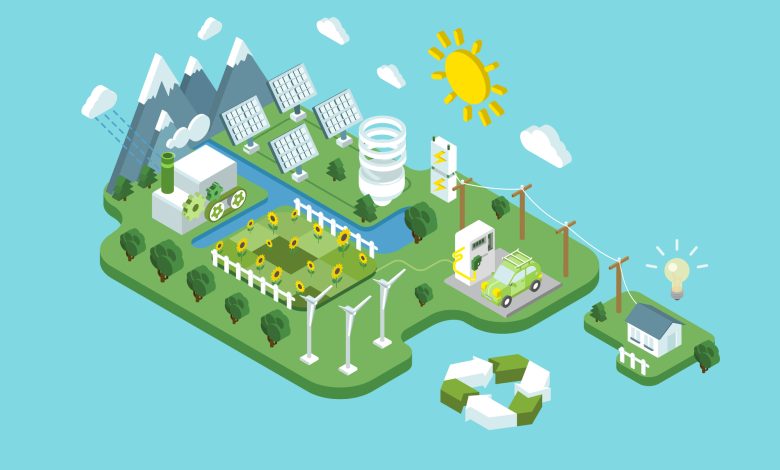Green communities: where will they be born and what are they?
The National Recovery and Resilience Plan PNRR has allocated 135 million for the Green Communities
(Sustainabilityenvironment.com) – “Terre del Monviso” in Piemonte. “La montagna del Latte” in Emilia Romagna. Il “Parco regionale Sirente Velino” in Abruzzo.
These are the first three Green communities that will be born in Italy thanks to the funds of NextGenerationEU. This was announced in recent days by the Minister for Regional Affairs and Autonomies Mariastella Gelmini during a press conference in Rome which was attended by the respective presidents of the Region.
The Mission “Green Revolution and Ecological Transition” of the PNRR (National Recovery and Resilience Plan) dedicates, in fact, to this initiative a specific line of investment. 135 million euros to support the project and ensure a fair and inclusive transition for small local communities.
Green communities, to enhance the local bioeconomy
The Green Communities project was born with the aim of supporting the sustainable development of rural and mountain areas that intend to exploit their natural resources in a balanced way. In other words, local communities – also in a coordinated or associated form – will be helped in the elaboration of energy, environmental, economic and social development plans that focus on water, forests and landscape. The PNRR provides for the financing of 30 Green Communities in total.
The scope of the plans is as follows:
- integrated and certified management of the agro-forestry heritage;
- integrated and certified management of water resources;
- the production of energy from local renewable sources, such as hydroelectric micro-plants, biomass, biogas, wind, cogeneration and biomethane;
- the development of sustainable tourism;
- the sustainable construction and management of the building stock and infrastructure of a modern mountain;
- energy efficiency and the intelligent integration of installations and networks;
- the sustainable development of productive activities (zero waste production);
- integration of mobility services;
- the development of a sustainable farm model.
The first national trials
The initiative financed by the PNRR starts with three pilot projects, respectively in Abruzzo, Emilia Romagna and Piemonte, and an allocation of 6 million euros.
These will be followed by 27 other green communities selected by a special call.
“This first experimental selection“, explains Minister Gelmini, “represents the best practices at the national level […] both for these and for subsequent projects, will involve regions, provinces, municipalities, associations, citizens and businesses. Interinstitutional collaboration is the pillar on which to build the entire investment”.
In detail, the Green community “Terre del Monviso“, in Piemonte, provides for the involvement of 75% of mountain municipalities. It’s characterized by protected areas and prestigious cultural heritage. Here will be launched a project of social housing and initiatives for the energy upgrading of public buildings. Together with the implementation of a local public-private renewable community and the development of a new sustainable tourism offer based on the involvement of the territories.
The project “Parco Regionale Sirente Velino”, in Abruzzo encompasses 22 municipalities and focuses instead on improving the governance of natural resource management processes, building efficiency and creating sustainable mobility networks. “An overall project that aims to modernize mountain realities and above all to put in place an innovative process of tourism enhancement that until now there had never been”, explains Vice President of the Abruzzo Region, Emanuele Imprudente.
The project Unione montana dell’Appennino Reggiano “La montagna del latte” will give space to a new offer of alternative mobility services in areas with weak demand and policies for sustainability, for the realization of energy communities and the spread of renewables, the enhancement of ecosystem services, the affirmation of new models of agricultural use and enhancement in line with the demands of climate change.






